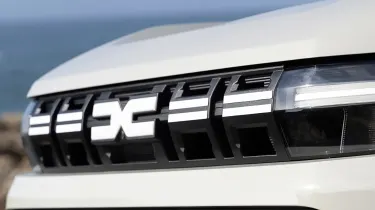
Dacia currently has only one all-electric model in its line up – the Dacia Spring – which at £14,995 is not only one of the cheapest cars on sale, but Britain’s cheapest electric car. During the Renault Group’s recent Ampere day Auto Express has now learned that Dacia’s future electric models could receive technology from the group’s electric division, Ampere, to help the value-driven Romanian brand grow its EV model range.
Speaking to Auto Express, Luca de Meo, CEO of the Renault Group and Ampere said, “we decided we would serve Renault group and OEMs so of course there’s discussion [from Ampere] with Dacia to help them transition to EVs.”
While Renault is currently on a path to replace its internal-combustion engine cars with pure-electric by 2030, there’s no set date for when Dacia will make the switch. “For Dacia we think it’s about value,” says de Meo, “we did the Spring – although that’s a different concept – we are looking at when the paths will cross in terms of EV pricing. Ampere serves as a background to help these brands.”
Dacia’s chief executive Denis Le Vot told Auto Express at the Paris Motor Show in October that the firm’s next electric car would be the next Sandero, arriving in 2027. The Dacia boss initially said the firm would delay its commitment to using EV or ICE powertrains for its next supermini until late 2025 as the Renault Group won’t provide the flexibility to have a multi-energy approach, like Stellantis for example.
Given that Ampere’s AmpR small platform has recently launched with the new Renault 5, it would make sense for the similarly-sized Sandero to use this same technology. Expect the Dacia to have a shorter range and slower recharge times than the Renault 5 and upcoming Nissan Micra EV, given the Sandero’s predisposed focus on value.
